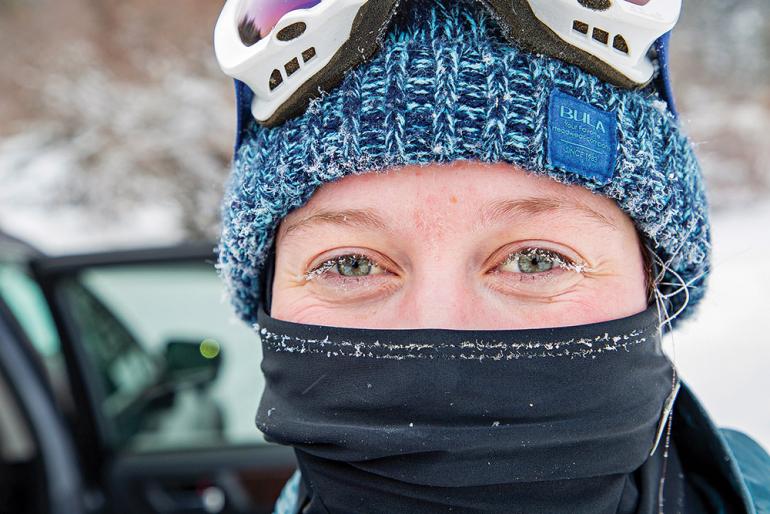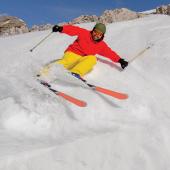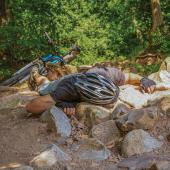Frost Shield
Keep your skin healthy this winter.
Winter can wreak havoc on our skin. The cold, the sun, and the dry air can turn us into sunburned prunes. I propose a few tips to help deal with the Rocky Mountain winter.
It’s no secret to the mountain junkies: cotton kills. Cotton is a poor insulator once saturated with sweat. The result could be frostbite or its early, milder phase, frostnip. Frostbite can lead to significant tissue loss and nerve damage. To avoid this, be sure to keep your hands and feet warm and dry by using synthetics, wool, or a blend of each in your gloves and socks. If your hands and feet tend to sweat more than most, bring a change of gloves and socks to swap at lunchtime. Facial frostbite is also common, and you often won’t even notice when it’s happening. Keep an eye on your mountain partners on colder days. Watch out for white spots on the tip of the nose, cheeks, and ears. They should be covered up and out of the cold as soon as possible. Some people suffer from vasospasms (constriction of blood flow) in the fingers and toes. These folks might have an underlying condition such as Raynaud’s and should be evaluated. There are some simple and safe medications that can help.
The sun can also cause a lot more damage in the winter than people realize. The longer wavelength of the sun’s rays, known as UVA, penetrate overcast skies and are more consistent throughout the day, unlike UVB. UVA is not responsible for burning the skin like UVB, but it does cause damage. It is the main culprit for thinning of the skin, most commonly associated with aging, and contributes to skin-cancer formation. Apply a broad-spectrum (meaning UVB and UVA protection) sunscreen liberally across sun-exposed skin. Also of note, sunscreen has not been shown to decrease vitamin D production.
The dry winter air also tends to make us itchy and prone to rashes (eczema). This is even more prevalent if your home has forced-air heating. Humidifiers in the home will help, particularly if they’re installed within your HVAC system. Keeping the skin moist requires avoiding harsh soaps that further dry your skin. Use a mild moisturizing type of soap and restrict soaping to the important parts. After bathing, it’s crucial to use a daily moisturizing cream (not a lotion). Your skin will thank you.
Aaron Bruce, DO, FAAD, FAOCD, FACMS, is a board-certified dermatologist and skin cancer surgeon.











